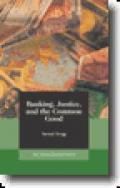


In his latest column, Tyler Cowen points out that whatever economic recovery we’ve experienced has “largely bypassed young people,” arguing that such a development is bound to have an impact for years e:
For Americans aged 16 to 24 who aren’t enrolled in school, the employmentpicture is grim. Only36 percent are working full time, down 10 percentage points from 2007. Longer term, the overall labor-force participation rate for that age group has dropped 20 percentage points for men and 14 points for women since 1989.
This lack of jobs will damage the long-term careers of a big chunk of the next working generation. Not working after you finish school very often means missing out on developing the skills and habits that will serve you well later on. The current employment numbers are therefore like a telescope into the future labor market: a 23-year-old who is working part time as a dog walker, yoga instructor or retail clerk may be having fun, but perhaps will receive fewer promotions as a 47-year-old.
Cowen notes a higher minimum wage as one potential culprit, but argues that “the root causes run much deeper,” ranging from increasing uncertainty to expanding globalization to a newfound pickiness among employers. Arnold Kling offers some additional hypotheses, including the idea that decreases in child-rearing among the young-and-able will likely lead to decreases in a need or desire to work full-time.
But although the causes certainly run deep, the bigger question has to do with how we, as individuals, respond:
Falling wages for new entrants to the job market suggest that a sizable chunk of the American labor force may never achieve middle-class wages in a relatively secure full-time job. And many young people don’t want to take physically demanding jobs, which are often filled by immigrants. Some young people are breaking out of these traps by starting new Internet or service-based businesses, in lieu of looking for traditional employment. But others end up in part-time, temporary or low-quality jobs, biding their time and hoping that something changes.
We may not like what the market is indicating here, but it would be a mistake to shoot the messenger — namely, the market itself. Businesses are measuring value more accurately and choosing more cautiously, and though that raises overall productivity, it isn’t good for all workers. Many face the burden of meeting the standards of a more demanding world, and not all are succeeding at that task. It’s a problem that won’t be solved by any kind of quick fix.
Indeed, just as much as this is a challenge of employment — of finding ways to put our hands to use in meeting the evolving needs of society — I wonder how much of this amounts to a challenge of individual attitudes and assumptions. Though a “more demanding world” presents its own set of difficulties, it also presents a host of opportunities, whether to challenge ourselves toward new pursuits of value, or to rethink and reconsider whatever individualistic mutations of The Good Life we’ve been prodded to dream up.
In some cases, this will involve doing precisely the work that we thought we left behind. As Mike Rowe continues to emphasize, America currently has “three million good jobs that no one seems to want,” and as Cowen duly notes, many immigrants are, in fact, seizing those jobs. In doing so, they’re building a wonderful foundation for generational mobility. But what about the rest of us?
I understand that many young folks, myself included, have the privilege and subsequent means to pursue the frontier differently, whether by risking it all on a new pany or going back to school for a fifth or sixth Master’s degree. But our approach mustn’t be detached from the reality that a foundation was, at one point, built for us, too.
We may be getting to a point where the coasting slows, and when it does, we shouldn’t hesitate to pick up the shovel and ready the cement.









